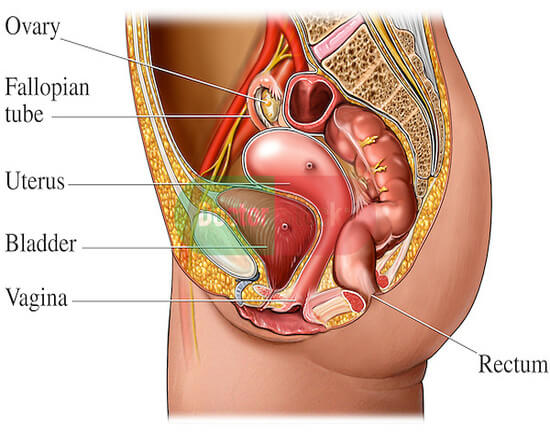Female sexual problems
Sexual dysfunction can be a result of a physical or psychological problem. Consult with the Sexologist for Female in Kolkata.
Physical causes: Sexual dysfunction can be the result of some underlying disease. We can take stress, drug and tobacco usage, alcoholic addiction, for instance, Sexual Dysfunction can be a cause of clogged blood vessels which is the consequence of hardening of the arteries, high cholesterol, insulin level that is high to a degree, excessive fat around the waistline of the body
Psychological causes: Different Psychological factors could be a reason for sexual dysfunction. Such as stress and anxiety, anguish, depression as a result of personal miseries which are basically generated from money, job, and marital problem. A sense of guilt that is impossible to subdue, a depression that is impossible to overcome and an indifferent anditovert attitude can be the result of acute sexual dysfunction.

Overview of Sexual Dysfunction in Women

Low Sexual Desire Disorder
In the female, low sexual desire disorder is a very common condition that makes them less interested in having sex. The symptoms of this low sexual drive of women are quite similar to symptoms of aging or getting old. This makes them overlook the symptoms and ignore them. However, low sexual desire disorder is not a condition that you can ignore, it can greatly affect your daily life and harm your relationship. This condition is also common for women who are going through changes in estrogen levels such as premenopausal and postmenopausal conditions. So visit the best Sexologist for Female in Kolkata.

Inability to become aroused
When the female body stops responding to sexual stimulation, then women develop the inability to become aroused. Many people develop this inability due to the lack of vaginal lubrication also. Apart from that, if anyone has inadequate stimulations or any type of anxiety, then this condition appears. Symptoms of this condition are quite similar to the low sexual desire disorder, such as less sexual thoughts, low or no sexual excitement while having sex, reduced arousal from external cues, and others

Orgasmic Disorder
As the name suggests, orgasmic disorder happens when someone is unable to reach the orgasm. If the partner is not able to provide enough sexual stimulation when arousal is there, then this condition occurs the most. Although men also face this common condition, it is mostly seen in females. Orgasms vary from one to another woman based on duration, intensity, and frequency of the sexual stimulation. Some of the common symptoms of having orgasmic disorder are general anorgasmia, secondary anorgasmia, primary anorgasmia, and others.

Painful intercourse
One of the most common conditions in females, painful intercourse is also known as dyspareunia. Women who are suffering from this condition feel pain in the area of the genitals while having intercourse. The intensity of pain varies from woman to woman and it can occur during sex, before sex, and after sex. While it is very common in females, it is also treatable with the help of doctors. The reason for developing this condition varies from people to people.

Sexual Arousal Disorders
Women mostly develop this condition that prevents them from getting arousal during intercourse. Sexual arousal disorder can happen from many different causes such as physical, emotional, or both. Some of the most common causes in these both types are anxiety, low self-esteem, relationship issues, stress, depression, and others. While this condition is developing, you might feel throbbing, swelling, or tingling in the genital area. In this case, you can discuss with the best Best Ayurvedic Doctor.

Persistent Genital Arousal Disorder
Another very common disorder that is mostly seen in many women is persistent genital arousal disorder. This condition is also known as persistent sexual arousal syndrome. People who have this condition get aroused without having any sexual activities or situations. They might feel aroused symptoms such as swelling or erection in the vagina when it is very unusual and unexpected. As it stays for hours, days, weeks, and even months, it can have a very deep impact on daily life.

Dyspareunia
It is a condition that happens in both men and women, but it is much more common in women. In this condition, people feel pain in their genital areas during intercourse that keeps them from getting any pleasure or continuing it. The time of dyspareunia development varies as it can develop after sex, before sex, and during sex. The cause of this condition might be emotional, physical, or both. People with this condition might have these common symptoms such as burning in the genital area, pain after pain-free intercourse, pain during penetration, pain like menstrual cramps, and others.

Provoked Vestibulodynia (Vulvar Vestibulitis)
Provoked Vestibulodynia is a very common condition in the female which stays for a minimum of 90 days. Women with provoked vestibulodynia feel pain during intercourse. This condition is also one of the chronic pains that can cause people to stop intercourse and prevent doing it. These pains also come with some other factors that depend on the patient’s history.Some of the most common problems that come with this condition are pain at the time of seminal fluid, cutting or burning pain during the vaginal opening, pain while inserting speculums or tampons. For better understanding consult with a professional, consult with the best Sexologist for Female in Kolkata .

Vaginismus
Another very common condition that happens mostly in the female compared to men is Vaginismus. In this condition, the muscles of the vagina come in contact at the time of vaginal penetration. Also, the condition can happen at the time of inserting a tampon in the vagina, at the time touching the vaginal area. This condition does not affect the arousal of sex but it greatly affects the penetration. If there are any physical abnormalities, it does not affect or develop the condition.
